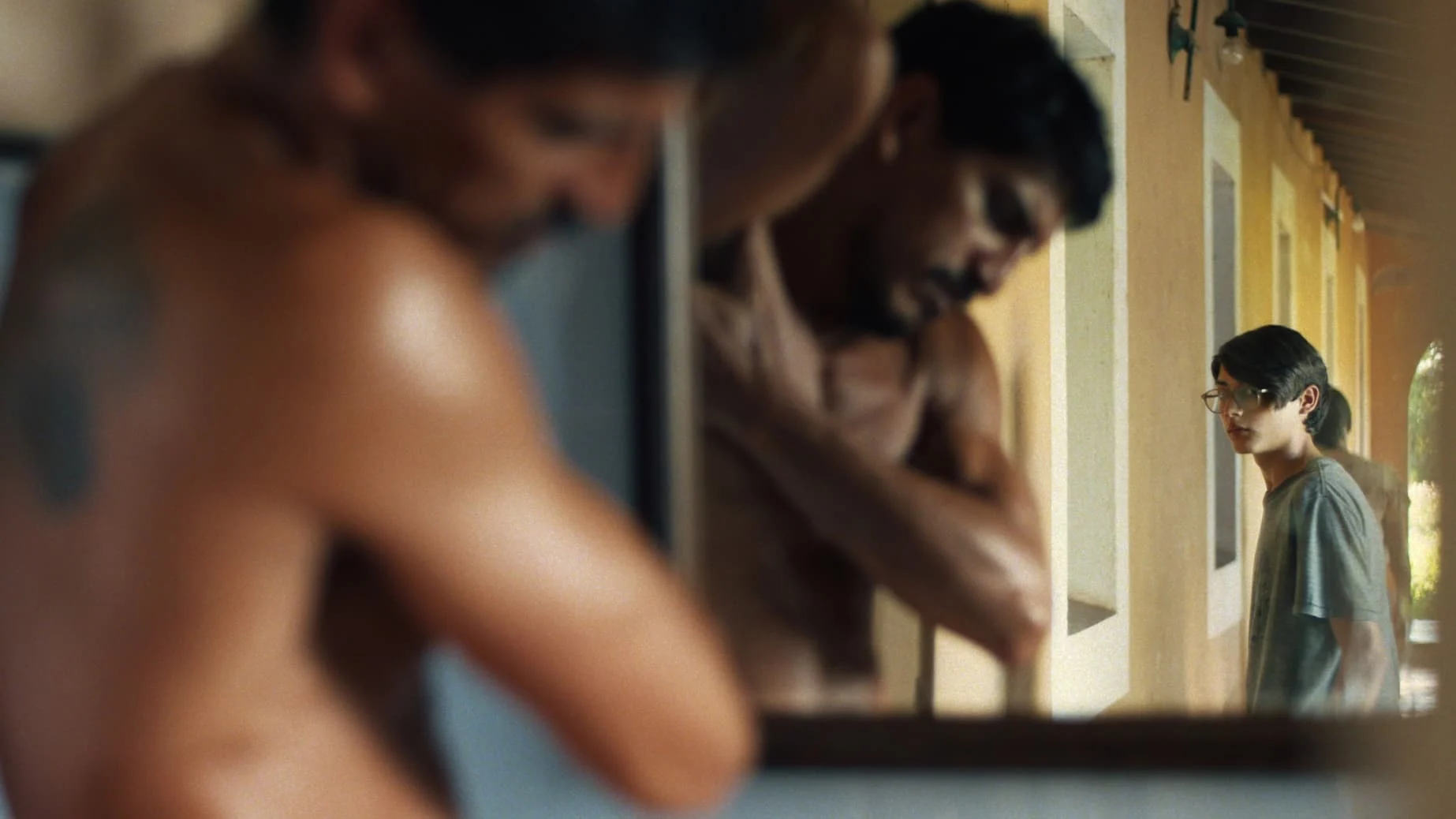Almamula (2023)- Review and Summary
Juan Sebastian Torales’ “Almamula” demonstrates that for gay youth, religion can be far scarier than the demons it preaches about.

Spoiler Alert: This summary and review contains spoilers.
Additionally, some images and text may include affiliate links, meaning we may earn a commission or receive products if you make a purchase.
“Almamula” General Information
| Director | Juan Sebastian Torales |
| Screenplay By | Juan Sebastian Torales |
| Based On | N/A |
| Date Released (Film Festival – NewFest) | October 12, 2023 |
| Genre(s) | Horror
Non-English (Spanish) |
| Film Length | 1 Hour, 35 Minutes |
| Content Rating | Not Rated |
| Noted Characters and Cast | |
| Nino | Nicholas Diaz |
| Estela | Maria Soldi |
| Natalia | Martina Grimaldi |
| Ernesto | Cali Coronel |
| Malevo | Beto Fragola |
Content Rating Explanation
“Almamula” is currently not rated, but features scenes of terror, sexual content involving teens, and violence involving animals.
Film Summary
This content contains pertinent spoilers. Also, images and text in this post may contain affiliate links. If a purchase is made from those sites, we may earn money or products from the company.
“Almamula” is an unflinching, personal, and fantastical tale about growing up, shedding your old skin, and welcoming your new one. Writer and director Juan Sebastian Torales makes Nino’s story in “Almaula” an intimate and creepy tale about a teenager who learns that if his religion can’t embrace his sexuality, he’ll find another mythical creature that will.
After experiencing relentless bullying at school, Nino (Nicholas Diaz) and his family decide to spend the summer in a remote countryside house in Argentina. This house is surrounded by a mysterious forest and situated in a conservative Catholic town. A child recently went missing in the forest, and some people whisper rumors of that child being taken by the folktale monster, Almamula.
At age 14, Nino is unable to escape from his awakening sexuality clashing with the religious traditions his family thinks will do him good. Nino is riddled with guilt as his sister Natalia (Martina Grimaldi) blames him for the family moving, his mom Estela (Maria Soldi) tries to get him confirmed into church, and his father Ernesto (Cali Coronel) becomes more distant. All the while, Nino begins to see visions of the titular mythic monster who haunts the forest. Instead of believing in God, Nino begins to further believe in the power of the Almamula.
“Almamula” takes Argentine folklore and holds it up to our collective uncomfortable moments we experience during puberty. Many adults and children continue to be shamed for their sexual curiosity and desires. The virgin being punished for impurity is a common horror trope. Torales spends a whole film dissecting why that is and begs the question: If monsters are the ones who desire us at our most sinful, why not embrace the monsters too?

Character Descriptions
Please Note: This character guide is not an exhaustive list of every cast member, and character descriptions may contain what can be considered spoilers.
Nino
Nino is 14 years old, and after suffering bullying at school for being gay, Nino is quiet and reserved. He feels he has no one to talk to and is filled with more guilt and shame whenever he longs for another man.
Estella
As Nino’s mom, Estella attempts to get Nino “on the right track” by putting him in a religious school. She claims Nino can tame his impure urges, but she has her own temptations that she battles when young, muscular day laborers constantly work around her.
Natalia
Nino’s sister, who can be very cruel to Nino and also very horny for the day laborers working around their house.
Ernesto
As Nino’s dad, Ernesto usually follows his wife’s lead. Ernesto’s work takes him into the mysterious forest, where he becomes quiet and withdrawn.
Malevo
A day laborer who becomes the object of temptation for Nino and his possible gateway to the Almamula.

Review
Our Rating: Positive (Worth Seeing)
Highlights
Terrific Sound Design Creates an Alluring and Creepy Atmosphere
Throughout “Almamula,” you hear the forest constantly chirping, communicating, and living. The noise from the forest can be soothing and haunting, as if Nino and his family are always being watched by an ominous force. The sound design takes the natural sounds surrounding us and turns them into something sinister lurking behind each step we take.
An Examination of Religious Oppression
In “Almamula,” Nino is not the only one feeling repressed and ashamed of his natural urges. Each family member experiences some type of sexual repression brought on by the values of the Catholic Church. Juan Sebastian Torales channels Nino’s earnest viewpoint as a chance to thoughtfully question and show how religion can do more harm than good and make us question who the real bullies and monsters can be.

On The Fence
Pacing Waivers From Hypnotic to Sleepy
“Almamula” takes its time developing its sense of dread and sexual temptations. The film is never rushed, nor does it reach a suspenseful climax. Due to the film’s natural slow rhythm, some may find the movie slow and sleepy. You may be waiting for the movie to kick into a new gear, but it never comes.
Who Is This For?
Fans of Latin folklore, fantasy, arthouse films, and LGBTQ+ stories might enjoy “Almamula.”
Recommendations
If you like this movie, we recommend:
Check out our movies page for our latest movie reviews and recommendations.
Images used for editorial and commentary purposes. All rights remain with their respective copyright holders.


